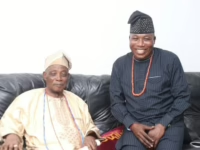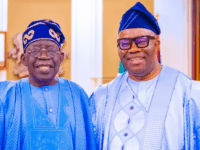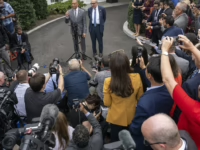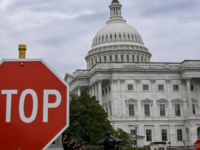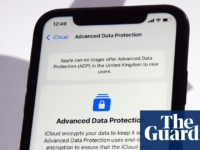As cultural history faces institutional erasure, the BET Hip Hop Awards pause-what new foundations should rise?
2 Chainz on stage during the 2024 BET Hip Hop Awards at Drai’s Beachclub & Nightclub, Las Vegas, Nevada, October 8, 2024.
Paras Griffin/Getty Images North America
In today’s hip-hop landscape, loss has become so frequent that mourning often feels rushed or overlooked. The recent announcement that the BET Hip Hop Awards (HHA) will no longer air on cable went largely unnoticed on social media, lacking the usual outpouring of hashtags or tributes. Could it be that hip-hop, energized by artists like Clipse, Freddie Gibbs, JID, and Chance the Rapper, no longer needs traditional accolades to validate its cultural impact? Or is it that rap’s commercial appeal has waned, making it less viable for mainstream television?
Ratings for the show have plummeted sharply. Following the celebration of hip-hop’s 50th anniversary in 2023, viewership for the 2024 awards dropped by nearly half. BET’s CEO Scott Mills described the status of both the Hip Hop and Soul Train awards as “suspended,” rather than canceled, in a Billboard interview. This development coincides with the acquisition of BET’s parent company, Paramount Global, by Skydance Media. The merger, approved by the FCC, came with conditions including a $16 million settlement related to a lawsuit against CBS’ 60 Minutes. Notably, Skydance agreed to dismantle all of Paramount’s diversity, equity, and inclusion (DEI) programs-eliminating the Office of Global Inclusion, scrapping hiring targets for women and people of color, and removing bonuses tied to DEI achievements.

Black Entertainment Television was established long before DEI became a corporate buzzword, yet it’s unclear how Paramount intends to sustain BET’s mission without these initiatives. This issue extends beyond the Hip Hop Awards themselves. Reflecting on the indefinite hiatus of the show, I find myself contemplating the broader implications. As Greg Tate once declared, hip-hop’s vitality has been questioned for years. Our culture’s current survival hinges less on community strength and more on its transformation into a lucrative commodity. When culture is commodified, it becomes vulnerable to being shelved or discarded when it no longer serves profit motives.
I recall attending the inaugural BET Hip Hop Awards in 2006, held at Atlanta’s prestigious Fox Theatre. The event was a grand affair, shutting down a prime section of Peachtree Street and signaling hip-hop’s undeniable dominance. This was a time when rap was still battling the effects of piracy and bootlegging but remained one of the most popular genres. The awards also marked the South’s rise in hip-hop, challenging the East Coast-centric media narrative. While purists debated the nuances between rap and “real” hip-hop, the HHAs bridged the gap between commercial success and cultural authenticity. Cyphers became a signature element, bringing mainstream artists back to the roots of MCing. Memorable moments included surprise freestyles and collaborations, such as Eminem with Slaughterhouse and Yelawolf in 2009, or Kendrick Lamar’s early lyrical challenge to Drake with TDE.
One of the show’s strengths was its credibility-winners rarely sparked controversy or accusations of bias. Unlike other award shows, the BET HHAs avoided questionable snubs or racially charged omissions, making it a trusted platform for recognizing hip-hop talent. For years, BET held a unique connection to an underserved audience-until that connection began to fray.
The industry’s first warning signs came in 2017 when hip-hop/R&B became the most consumed genre in the U.S., yet mainstream institutions were slow to fully embrace this shift. The murder of George Floyd and the subsequent national reckoning prompted organizations like the Recording Academy to address their historic neglect of Black artists. Since Harvey Mason Jr. became the Academy’s first Black president/CEO in 2021, efforts to diversify voting members have increased. Kendrick Lamar’s multiple Grammy wins in 2024, including song and record of the year, were seen as overdue recognition. Meanwhile, BET’s music programming diminished. The cancellation of the beloved 106 & Park in 2014 left the Hip Hop Awards feeling like an afterthought rather than a flagship celebration of Black music.
My last experience attending the BET HHAs was in 2023, hip-hop’s 50th anniversary. The event paid tribute to pioneers like Marley Marl and Red Alert, and I noticed former BET executive Stephen Hill entering discreetly, a sign of the show’s diminished stature. No longer held in Atlanta’s vibrant core, the ceremony had moved to a suburban venue, scaled down from its former grandeur. Despite the golden anniversary, the narrative was bleak: for the first time in decades, no rap songs or albums topped the Billboard 200 or Hot 100 charts. The premature declarations of hip-hop’s decline echoed loudly.
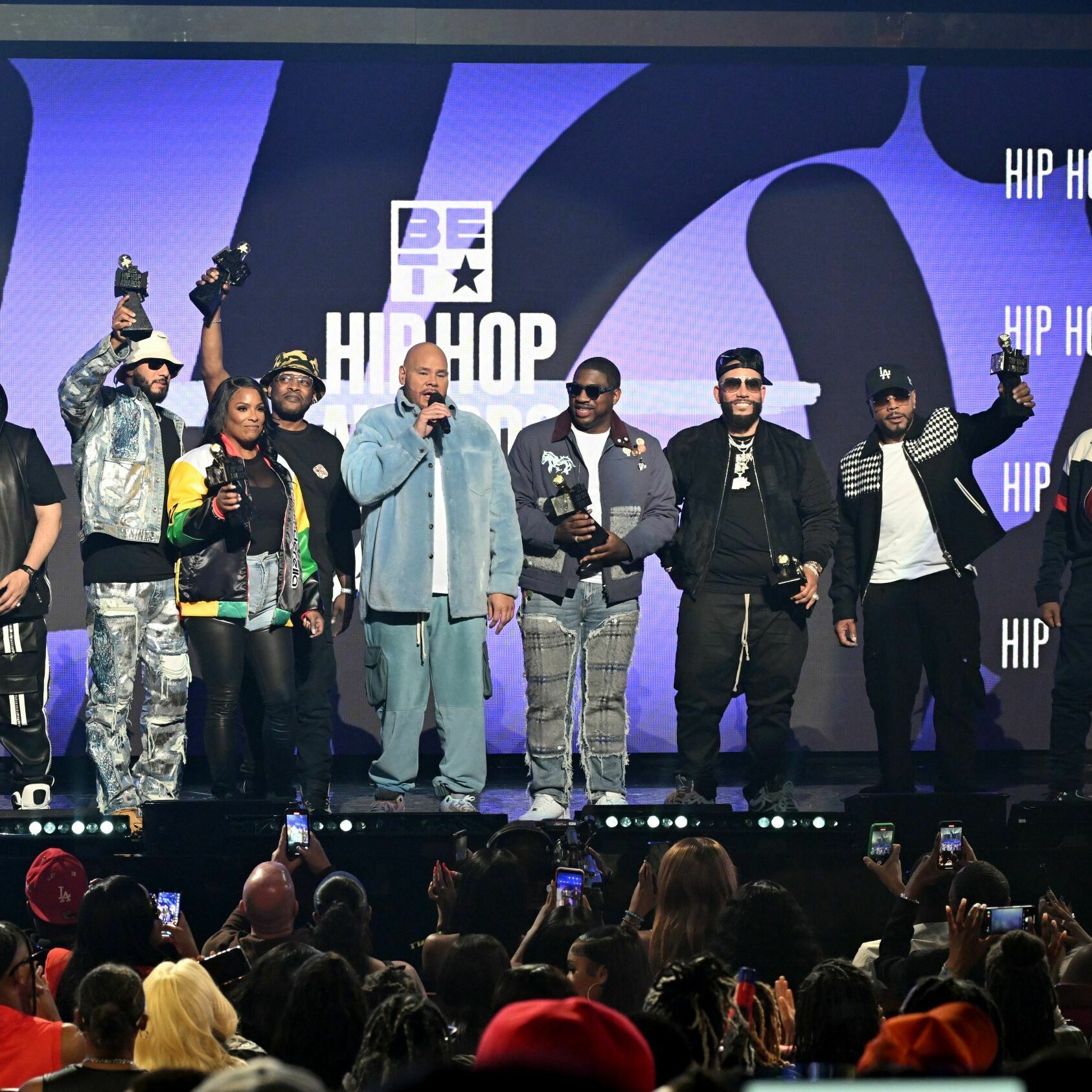
This kind of retrospective often emerges when external forces control the narrative of a culture’s history. The BET HHAs were never the definitive authority on hip-hop-that mantle once belonged to the Source Awards in the ’90s, and later the Vibe Awards, both casualties of print media’s decline. Still, BET’s nearly two-decade run deserves acknowledgment for consistently spotlighting emerging rap talent. Now that the show is on indefinite hold, it’s worth examining why hip-hop has struggled to sustain a long-lasting awards platform and why public institutions honoring the genre remain scarce.
The true legacy of an awards show lies not in fleeting ratings but in its ability to influence cultural memory. While televised ceremonies capture a moment in time, their lasting impact is as public archives that shape how history is remembered-or rewritten. This power to control the narrative is fiercely contested. Institutions like the Smithsonian’s National Museum of African American History and Culture have faced political backlash for highlighting the brutal realities of slavery. The Kennedy Center has been targeted for embracing what critics label “woke culture.”
President Trump’s early visit to the African American museum in 2017 celebrated the “unbreakable American spirit,” yet his later terms saw increased criticism of what he called “divisive, race-centered ideology” permeating such institutions. I recall my own visit to the museum, marveling at artifacts like Public Enemy’s S1W paramilitary uniform and the original vinyl of The Last Poets’ revolutionary album. Yet, under current political pressures, how secure are these cultural treasures? If a historic painting depicting the scars of slavery drew federal ire, could provocative hip-hop imagery-like Kendrick Lamar’s To Pimp a Butterfly cover or Ice Cube’s Death Certificate-face similar censorship?
How much of hip-hop’s visual and sonic legacy might be deemed “anti-American” in this climate? If digital platforms restrict access, where will our history reside-only in memory and oral tradition? How will future generations connect with the roots and evolution of this culture?
https://www.youtube.com/watch?v=VN2IteZRHvc[/embed>
YouTube
It’s been a long time since hip-hop was criticized for being “too woke.” Artists who have won BET Hip Hop Awards and also faced backlash for supporting Trump include figures as diverse as Snoop Dogg and Sexyy Red. While some dismiss the current political tensions as misinformation, the reality remains: when Black history is under attack, our culture becomes increasingly vulnerable. Despite rap/R&B’s continued popularity, recent declines have emboldened major labels to deprioritize the genre. This shift has triggered a wave of departures among Black executives. Without sustained investment or institutional support, hip-hop risks having its contributions erased or forgotten. The fragility of digital archives-especially amid AI-driven content scraping and incomplete streaming catalogs-threatens to erase countless works and histories.
Hip-hop’s transient nature in the digital era makes it both invaluable and precarious-ever-present yet lacking a permanent home. Scholar Mark Anthony Neal, in Black Ephemerality: The Crisis and Challenge of the Musical Archive, highlights the unprecedented accessibility of Black cultural archives, or “big Black data.” Yet he also critiques how this accessibility often reduces Black music to mere background noise in the ongoing commodification of the culture.
In a time when America’s uncomfortable history is being actively rewritten or erased by those in power, the loss of the BET Hip Hop Awards may seem minor. For some, it might even be a relief, given past criticisms of how well the show represented the culture. But it serves as a stark reminder: our culture is never immune to cancellation-not from online critics, but from the executives and gatekeepers who control platforms and narratives. Hip-hop should never have depended solely on a television network to define its legacy. This reliance made it vulnerable to shifting commercial interests and chart performance as the ultimate measure of success. Still, having a recurring cultural monument-something built for us, if not entirely by us-offered a yearly touchstone to resist erasure and affirm our place in the cultural landscape.
What’s urgently needed are more public archives-democratically curated and widely accessible. We need broader platforms to broadcast our cultural revolutions, countering America’s narrow media focus. This is why the upcoming Hip Hop Museum in the Bronx, the genre’s birthplace, inspires hope. Supported by a blend of public and private funding, the 50,000-square-foot institution is designed by “hip-hop architect” Michael Ford, who began the project with a cypher session. Ford emphasized community involvement, collaborating with young Black architects and hip-hop legends like Roxanne Shante to shape the museum’s vision. “Our communities are often excluded from these processes,” he told the Uprising newsletter in 2024. “This was about working with the culture.”
While it remains to be seen how the museum will withstand the relentless forces of American pop culture and political shifts, at least a physical space cannot be indefinitely shelved or suspended. It stands as a lasting testament to hip-hop’s enduring legacy.






